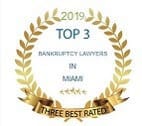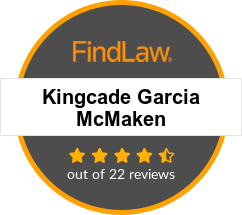Changing the Face of Foreclosure in Florida
Earlier this year, Bank of America foreclosed on Charlie and Maria Cardoso’s retirement home in Florida. In the wake of the economic crisis and collapse of the housing market, this is not unusual. However, the Cardosos say that they paid cash for the home back in 2005. In a complaint filed in federal court, the Massachusetts couple says that they were unable to convince Bank of America that it was foreclosing on the wrong property, even when the company’s own real estate agent concurred.
Citi-Residential reportedly started the foreclosure on a Kissimmee home in 2008; it changed the locks and emptied the pool, despite the fact that the owner did not have a mortgage with the lender, says a WFTV report. The company attributes the error to the high number of foreclosures in Central Florida.
RealtyTrac indicates that there were over 1.8 million foreclosures in the United States in November 2010; Florida was second only to California in the number of foreclosures, with nearly 33,000. With stories such as these, some of these foreclosures may warrant another look.
Nationwide Investigation of Big Mortgage Lenders
The attorney generals from every state are joining in an investigation of big mortgage lenders, reports The New York Times. The banks are hoping for a quick and quiet resolution. Lawrence Di Rita of Bank of America says that recovery of the housing market is vital to restoring economic growth and the sooner this resolution comes, the better.
Investigators maintain that they will take the time needed to address properly this opportunity to change the way banks deal with defaulting lenders. USA Today says that Diane Thompson of the National Consumer Law Center told the Senate banking committee in November that about ten percent of the cases she handles involve homeowners who are not in any default when the foreclosure proceedings were initiated.
The big threat to the banks is the potential that investors will force buybacks of hundreds of billions of dollars in bad mortgage debt, reports The New York Times. Forcing the banks to buy back these mortgages could potentially shift $425 billion in losses on mortgage-backed securities from the investors back to the originating banks.
Beginning in September of this year, some of the major lenders instituted a freeze on foreclosures to investigate whether employees were complying with all legal requirements before seizing homes. Specifically of concern was the practice of “robo-signing,” or signing and filing documents that were not read or reviewed. This practice may have come about as a way to deal with the backlogs of foreclosures stemming from the high volume of defaults.
Individual Homeowner’s Battle With Lender
The St. Petersburg Times tells the story of Carlson Dunedin, whose Florida home was foreclosed by Bank of America in 2008. He claims the bank did not properly inform him of its decision to foreclose, and is defending against foreclosure in court.
The twist is that the home has already been resold. If Dunedin is successful in court, the current owners may be evicted and have a claim against the bank. The outcome of Dunedin’s case could have serious implications for bank liability regarding defective foreclosure proceedings.
Statewide Efforts in Florida
Currently, Florida is a judicial foreclosure state – which essentially means that homeowners cannot be foreclosed on until the court finds their mortgage debt to be valid and issues a judgment. This process takes longer, but generally prevents foreclosure errors from occurring.
This year, the Florida Bankers Association (FBA) backed a proposal to allow banks to proceed with nonjudicial foreclosure. The expedited process could be completed in as little as three months and with no judicial oversight. Bankers say the faster process would get foreclosed hands into possession by new owners faster, preventing the homes from falling into disrepair. Banks would also be spared the court filing fees if allowed to proceed with nonjudicial foreclosure.
However, critics of the bill say it provides no independent review and therefore no safeguards against bank error.
The efforts were ineffective, but do illustrate the direction that Florida foreclosure law may take in the future.
Affected Florida Homeowners
Charlie Cardoso says he drove with his son to his Florida home only to discover that the locks had been changed and personal belongings, including photos, clothes, tools and small appliances, had been removed from the home. The water and electricity had been turned off, and the pipes had frozen.
Those who have defaulted or who fear they are approaching default on their mortgage should speak with an attorney. Whether or not foreclosure proceedings have been started, and whether or not the lender has complied with the legal requirements of judicial foreclosure, a lawyer can advise homeowners of their rights and help protect their interests.
















